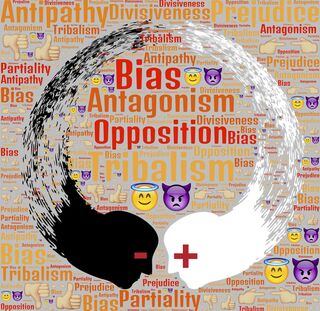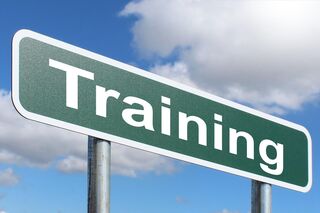Relationships
Where Therapists and Counselors Can Learn About Polyamory
More clients need help with CNM relationships, and therapists need training.
Posted August 11, 2020
Previous blog posts in this series have explained how therapeutic bias harms people in consensually non-monogamous (CNM) relationships and ways in which mental health service providers can work against their own personal, religious, and cultural biases.
One of the most important ways to provide adequate care to clients in CNM relationships is for clinicians to inform themselves about these diverse relationships. Very few counseling training programs have provided any information on CNM, in part because limited literature and public awareness meant it was more difficult to teach and less common so therapists had less need of it.
Interest in CNM has grown rapidly in the last decade, and far more people are considering or attempting CNM relationships than in the past. This means that more therapists are seeing clients with issues related to CNM, and these therapists might not have had any training in CNM-related issues at all. If they were trained in how to manage the issues surrounding sex that happens outside a couple, chances are these therapists got a full dose of compulsory monogamy in which all “infidelity” must be stamped out prior to making any progress on other issues.
This post provides therapists and counselors with resources to build their knowledge base about CNM relationships and more effectively serve their clients.

Therapeutic Bias
A brief note before we examine the organizations, books, podcasts, and training programs where counselors and therapists can gain information and skills to serve CNM clients. Because therapeutic bias against any form of non-monogamy (which is commonly equated with cheating) is foundational to many marriage and family counseling training programs, most counselors will have been indoctrinated with prejudice against CNM in graduate school.
Furthermore, compulsory monogamy influences culture at all levels, including laws, norms, values, and biases both conscious and unconscious. Compulsory monogamy is evident in negative public opinions about CNM relationships and mental health professionals’ assumption that CNM relationships are malfunctioning.
Discussing therapeutic bias is not an effort to blame or shame people who have never considered the polyamorous possibility, but rather an effort to encourage all counselors and therapists to reflect upon their own ideas about monogamy, cheating, and consensual non-monogamy before they treat clients in CNM relationships.
Organizations
Several organizations have created informational whitepapers that detail best practices for serving CNM clients.
In collaboration with the National Coalition of Sexual Freedom, psychologist Geri Weitzman and colleagues produced "What Psychology Professionals Should Know About Polyamory," a free and incredibly useful short guide for anyone interested in counseling people in CNM relationships.
Division 44 of the American Psychological Association created the Task Force on Consensual Non-Monogamy to help understand this growing trend in relationships, and the Task Force has been incredibly productive. (In the interests of transparency, I must disclose that I am the co-chair of the Task Force Committee on Legal Issues.) In addition to a plethora of published and ongoing studies, the Task Force is constructing a range of tools useful for therapists and counselors who serve folks in CNM relationships. Because the Task Force is producing so much great information, it will get its own post here soon, so watch this space for more information.
Books
Published in 2018, Rhea Orion’s A Therapist’s Guide to Consensual Nonmonogamy: Polyamory, Swinging, and Open Marriage is a delightfully approachable read that provides in-depth information on the most common types of CNM. A Therapist’s Guide is a great place to start for anyone new to serving CNM clients and also has deep insights that more experienced practitioners will find useful.
The real publishing action in CNM therapeutic issues has been in peer-reviewed counseling and psychology journals, however, which are teeming with articles on consensual nonmonogamy.
While not directed specifically at therapists, a host of interesting books documenting research on CNM relationships provide clinicians with valuable information to understand these relationships and families. Jillian Deri’s Love’s Refraction: Jealousy and Compersion in Queer Women's Polyamorous Relationships offers insight into women's polyamorous relationships and how they manage jealousy. Maria Pallotta-Chiarolli’s Border Sexualities, Border Families in School documents poly families' interactions with schools in Australia. The Polyamorists Next Door: Inside Multiple Partner Relationships and Families, reports on the first 15 years of my longitudinal study of polyamorous families with children.

The dearth of books designed specifically for mental health practitioners should not deter clinicians from educating themselves about CNM, however. Scores of self-help books aimed at polyamorous folks and others in CNM relationships provide an overview of issues common in CNM relationships and ways to address these challenges. Kathy Labriola, a nurse and counselor who has served CNM clients since 1985, has written three books clinicians will find useful, including Love In Abundance: A Counselor's Advice on Open Relationships; The Polyamory Breakup Book: Causes, Prevention, and Survival; and The Jealousy Workbook. Psychologist Tamara Pincus’s It’s Called Polyamory: Coming Out About Your Nonmonogamous Relationships details the various issues around coming out and includes people's experiences with coming out as polyamorous.
Kevin Patterson’s Love’s Not Colorblind: Race and Representation in Polyamorous and Other Alternative Communities addresses race and racism in polyamorous communities, and Rewriting the Rules: An Integrative Guide to Love, Sex, and Relationships by psychologist Meg John Barker provides guidance to people who want to reconsider the ways they have been managing relationships in the past. Amy Gahran offers insights into solo-poly relationships with Stepping Off the Relationship Escalator: Uncommon Love and Life.
Finally, too many memoirs to list here document people’s varied experiences with CNM relationships. Another blog post in this series lists many more books—including some of those memoirs—and links to even more. Suffice to say that, for counselors and therapists who learn best by reading, there are a plethora of options to satisfy educational needs.
Podcasts
People who learn best by listening are in luck because there are many CNM-related podcasts that can provide a wide range of education in CNM relationships and culture. Pioneer and a perennial favorite, Cunning Minx, has been recording Polyamory Weekly since 2005. In the past 15 years, Minx has interviewed hundreds of people, and listening to her show gives you not only up-to-date information and current views, but can offer a retrospective on the evolution of polyamory since the mid-2000s.
Also, a longtime favorite but not specifically CNM-focused, Tristan Taormino’s radio program that became a podcast, Sex Out Loud, has been exploring sexual diversity since 2012 and offers smart discussion on a wide range of sex-positive topics, including CNM. Newer favorites include the Multiamory podcast with Emily, Dedeker, and Jase, as well as the Loving Without Boundaries podcast with Kitty Chambliss.
Training
Unfortunately, there are few official programs in graduate schools that provide counselors and therapists dedicated training in CNM relationships. Two outstanding options prove the exceptions to this rule: Widener University and the Department of Sexuality Studies at San Francisco State University both offer extensive education about consensual nonmonogamy. Many other programs offer one or two classes on “alternative” relationships that tend to combine LGBT+, CNM, and kinky clients under a singular heading.

Independent training programs offer a much wider range of education and often provide certifications and specializations. The Greenhouse at Lifeworks in Chicago offers individual supervision to support emerging professionals and deepen skills for practiced professionals, case consultations to assist practitioners serving marginalized groups, and training counselors in cultural competency required to effectively serve people in a range of relationships including consensual nonmonogamy.
Under Dr. Rachel Needle, the Modern Sex Therapy Institutes provides in-person and online training for counselors and therapists seeking certification in a wide range of sexuality topics, from clinical sexology to sex therapy specializing in LGBTQ+, alternative relationships, medical sexology, and sex education or counseling. Also, The Affirmative Couch offers training for therapists who wish to serve LGBTQIA+, consensually nonmonogamous, or kinky clients. The Affirmative Couch is approved by the American Psychological Association to provide continuing education for psychologists.
The Sexual Health Alliance provides extensive continuing education on CNM and other diverse relationship styles like BDSM, LGBTQ+, and people who organize or attend orgies. For the past several years, I have partnered with SHA, providing continuing education classes in cities across the U.S. This year, we are collaborating on a year-long online course that provides certification for counselors and therapists seeking to serve clients in CNM relationships.
If you have found a good source of education for counselors and therapists that want to learn more about CNM relationships that does not appear in this post, please include that resource in the comments below.
To find a therapist, please visit the Psychology Today Therapy Directory.
References
Moors, A. C., Matsick, J. L., Ziegler, A., Rubin, J. D., & Conley, T. D. (2013). Stigma toward individuals engaged in consensual nonmonogamy: Robust and worthy of additional research. Analyses of Social Issues and Public Policy, 13(1), 52-69.
Conley, T. D., Moors, A. C., Matsick, J. L., & Ziegler, A. (2013). The fewer the merrier?: Assessing stigma surrounding consensually non‐monogamous romantic relationships. Analyses of Social Issues and Public Policy, 13(1), 1-30.
Henrich, R., & Trawinski, C. (2016). Social and therapeutic challenges facing polyamorous clients. Sexual and Relationship Therapy, 31(3), 376-390.
Orion, R. (2018). A Therapist’s Guide to Consensual Nonmonogamy: Polyamory, Swinging, and Open Marriage. Routledge.
Deri, J. (2015). Love's refraction: Jealousy and compersion in queer women's polyamorous relationships. University of Toronto Press.
Pallotta-Chiarolli, M. (2010). Border sexualities, border families in schools. Rowman & Littlefield.
Labriola, K. (2011). Love In Abundance: a counselor's advice on open relationshis. SCB Distributors.
Barker, M. (2012). Rewriting the rules: An integrative guide to love, sex and relationships. Routledge.
Gahran, A. (2017). Stepping off the relationship escalator: Uncommon love and life. Office the Escalator Enterprises, LLC.




